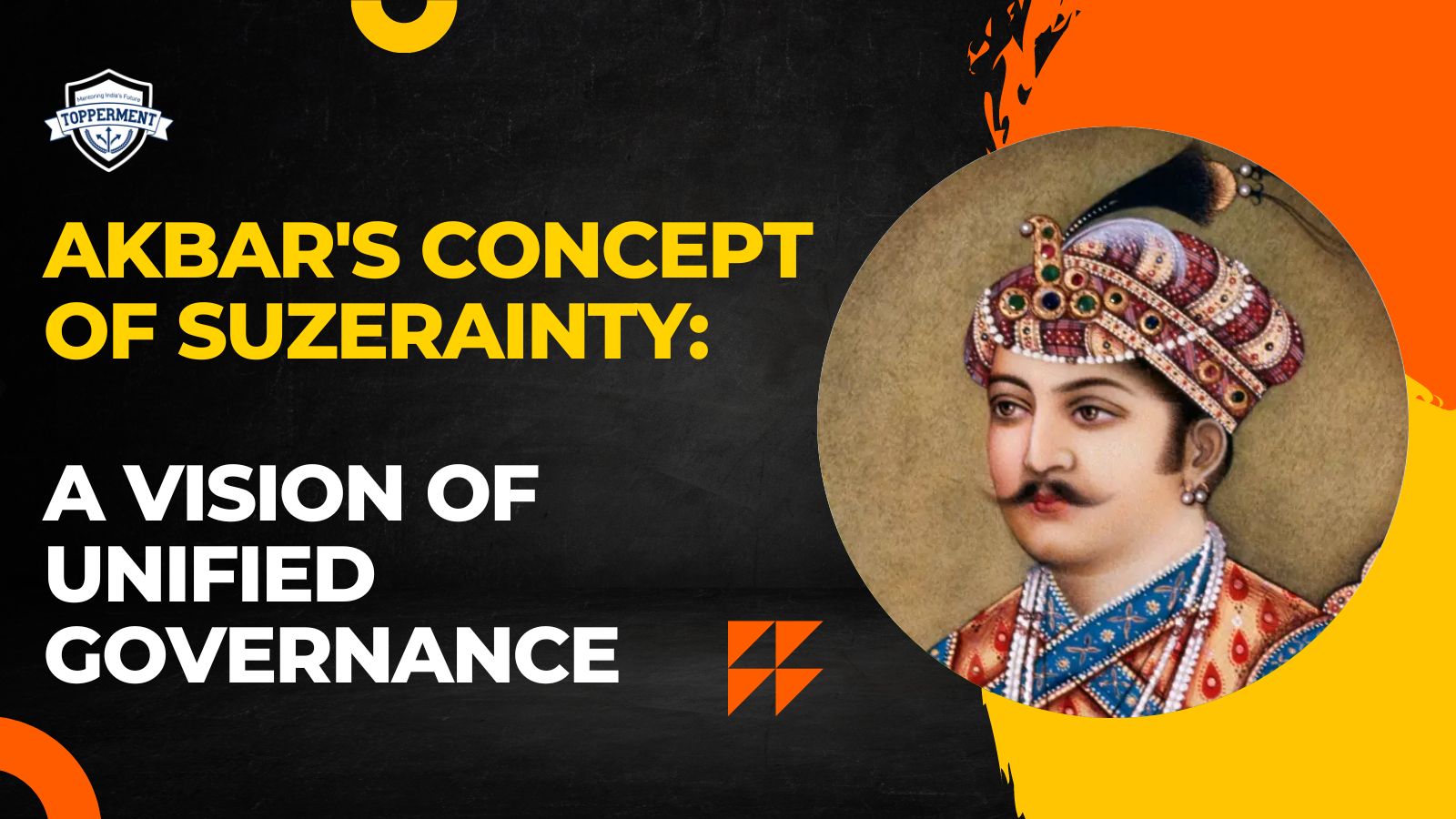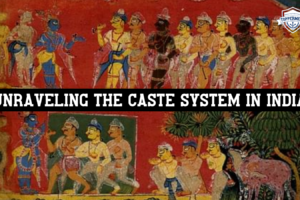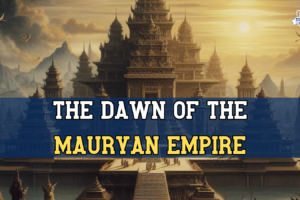
Akbar’s Concept of Suzerainty: A Vision of Unified Governance | UPSC History
Akbar the Great, the third Mughal emperor of India, introduced a unique concept known as suzerainty during his reign from 1556 to 1605. This concept aimed to establish a unified system of governance that would ensure harmony and stability across the diverse territories under Mughal rule. Akbar’s concept of suzerainty was a significant departure from the conventional notions of empire-building, as it emphasized religious tolerance, cultural assimilation, and the participation of various communities in the administration
Suzerainty, as envisioned by Akbar, refers to a political arrangement where a central authority exercises control over a group of subordinate states while granting them certain autonomy and religious freedom.
Religious Toleration:
Akbar sought to foster religious harmony and reduce conflicts arising from religious differences. He implemented policies such as the abolition of the jizya (tax on non-Muslims), the establishment of the Ibadat Khana (House of Worship) for interfaith dialogues, and the creation of the Din-i-Ilahi, a syncretic religious movement that aimed to promote unity among different faiths.
Cultural Assimilation:
To promote cultural integration, Akbar encouraged interactions between people of different ethnicities and backgrounds. He patronized art, literature, and architecture, leading to the flourishing of Indo-Islamic art forms like the Mughal miniature paintings and the construction of magnificent structures like the Fatehpur Sikri complex.
Administrative Innovations:
Akbar revolutionized the Mughal administration by introducing efficient administrative practices. He implemented a centralized bureaucracy comprising ministers, administrators, and revenue officials, which helped in the effective governance of the vast empire. He also introduced a system of Mansabdari, which assigned ranks (mansabs) to officials based on their military and administrative capabilities.
Participatory Governance:
Akbar recognized the importance of engaging local communities in decision-making processes. He established the institution of the “Din-e-Ilahi Mahzar” or the “Divan-e-Aam” where people from all walks of life, including commoners, could present their grievances and seek justice. This approach helped in creating a sense of inclusivity and gave voice to the concerns of the subjects.
Akbar’s concept of suzerainty represents a remarkable vision of governance that transcended conventional notions of empire-building. By promoting religious tolerance, cultural assimilation, and participatory governance, Akbar aimed to create a harmonious and united empire.



